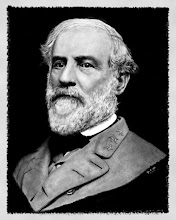1. It violates the scriptural law of hearing.
The power of speech is a noble gift of God. In his ability to open his mouth and by means of words make his fellows know what is going on inside his mind, a man shares one of the prerogatives of the Creator. In its ability to understand the spoken word the human mind rises unique above all the lower creation. The gift which enables a man to translate abstract ideas into sounds is a badge of his honor as made in the image of God.
Written or printed words are sound symbols and are translated by the mind into hearing. Hieroglyphics and ideograms were the first symbols used to represent ideas. These ideograms were, in effect, not pictures but letters, and the letters were agreed-upon ideas. Thus words, whether spoken or written, are a medium for the communication of ideas. This is basic in human nature and stems from our divine origin.
It is significant that when God gave to mankind His great redemptive revelation He couched it in words. "And God spake all these words" very well sums up the Bible's own account of how it got here. "Thus saith the Lord" is the constant refrain of the prophets. "The words that I speak unto you, they are spirit, and they are life," said our Lord to His hearers. Again He said, "He that heareth my word, and believeth on him that sent me, hath everlasting life." Paul made words and faith to be inseparable: "Faith cometh by hearing, and hearing by the word of God." And he also said, "How shall they hear without a preacher?"
Surely it requires no genius to see that the Bible rules out pictures and dramatics as media for bringing faith and life to the human soul.
The plain fact is that no vital spiritual truth can be expressed by a picture. Actually all any picture can do is to recall to mind some truth already learned through the familiar medium of the spoken or written word. Religious instruction and words are bound together by a living cord and cannot be separated without fatal loss. The Spirit Himself, teaching soundlessly within the heart, makes use of ideas previously received into the mind by means of words.
If I am reminded that modern religious movies are "sound" pictures, making use of the human voice to augment the dramatic action, the answer is easy. Just as far as the movie depends upon spoken words it makes pictures unnecessary; the picture is the very thing that differentiates between the movie and the sermon. The movie addresses its message primarily to the eye, and the ear only incidentally. Were the message addressed to the ear as in the Scriptures, the picture would have no meaning and could be omitted without loss to the intended effect. Words can say all that God intends them to say, and this they can do without the aid of pictures.
According to one popular theory the mind receives through the eye five times as much information as the ear. As far as the external shell of physical facts is concerned this may hold good, but when we come to spiritual truth we are in another world entirely. In that world the outer eye is not too important. God addresses His message to the hearing ear. "We look," says Paul, "not at the things which are seen, but at the things which are not seen: for the things which are seen are temporal; but the things which are not seen are eternal." This agrees with the whole burden of the the Bible, which teaches us that we should withdraw our eyes from beholding visible things, and fasten the eyes of our hearts upon God while we reverently listen to His uttered words.
"The word is nigh thee, even in thy mouth, and in thy heart: that is, the word of faith, which we preach." Here, and not somewhere else, is the New Testament pattern, and no human being, and no angel from heaven has any right to alter that pattern.
(A. W. Towzer)













+copy.jpg)




No comments:
Post a Comment